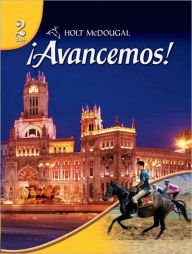
All Solutions
Page 25: Actividad 24
– qu**e**rer. *(to want)* $Rightarrow$ Yo qu**ie**ro, Tú qu**ie**res, etc.
– p**o**der. *(to be able/can)* $Rightarrow$ Yo p**ue**do, Tú p**ue**des, etc.
– s**e**rvir. *(to serve)* $Rightarrow$ Yo s**i**rvo, Tú s**i**rves, etc.
– Yo **quiero** ir…
– *I want to go…*
– qu**e**rer. *(to want)* $Rightarrow$ Yo qu**ie**ro, Tú qu**ie**res, etc.
– p**o**der. *(to be able/can)* $Rightarrow$ Yo p**ue**do, Tú p**ue**des, etc.
– s**e**rvir. *(to serve)* $Rightarrow$ Yo s**i**rvo, Tú s**i**rves, etc.
– …pero no **puedo**.
– *…but I can’t*
– qu**e**rer. *(to want)* $Rightarrow$ Yo qu**ie**ro, Tú qu**ie**res, etc.
– p**o**der. *(to be able/can)* $Rightarrow$ Yo p**ue**do, Tú p**ue**des, etc.
– s**e**rvir. *(to serve)* $Rightarrow$ Yo s**i**rvo, Tú s**i**rves, etc.
– Mi hermano tiene el coche y él no **vuelve** hasta mañana.
– *My brother has the car and he doesn’t get back until tomorrow.*
– qu**e**rer. *(to want)* $Rightarrow$ Yo qu**ie**ro, Tú qu**ie**res, etc.
– p**o**der. *(to be able/can)* $Rightarrow$ Yo p**ue**do, Tú p**ue**des, etc.
– s**e**rvir. *(to serve)* $Rightarrow$ Yo s**i**rvo, Tú s**i**rves, etc.
– Catalina **piensa** que el concierto va a ser fantástico.
– *Catalina thinks the concert is going to be fantastic.*
– qu**e**rer. *(to want)* $Rightarrow$ Yo qu**ie**ro, Tú qu**ie**res, etc.
– p**o**der. *(to be able/can)* $Rightarrow$ Yo p**ue**do, Tú p**ue**des, etc.
– s**e**rvir. *(to serve)* $Rightarrow$ Yo s**i**rvo, Tú s**i**rves, etc.
– …pero ella no **puede** ir tampoco.
– *…but she can’t go either.*
– qu**e**rer. *(to want)* $Rightarrow$ Yo qu**ie**ro, Tú qu**ie**res, etc.
– p**o**der. *(to be able/can)* $Rightarrow$ Yo p**ue**do, Tú p**ue**des, etc.
– s**e**rvir. *(to serve)* $Rightarrow$ Yo s**i**rvo, Tú s**i**rves, etc.
– Las entradas **cuestan** $50.
– *Tickets are $50.*
– qu**e**rer. *(to want)* $Rightarrow$ Yo qu**ie**ro, Tú qu**ie**res, etc.
– p**o**der. *(to be able/can)* $Rightarrow$ Yo p**ue**do, Tú p**ue**des, etc.
– s**e**rvir. *(to serve)* $Rightarrow$ Yo s**i**rvo, Tú s**i**rves, etc.
– Con $50 mi familia y yo **almorzamos** en el restaurante Samba.
– *With $50 my family and I had lunch at the Samba restaurant.*

